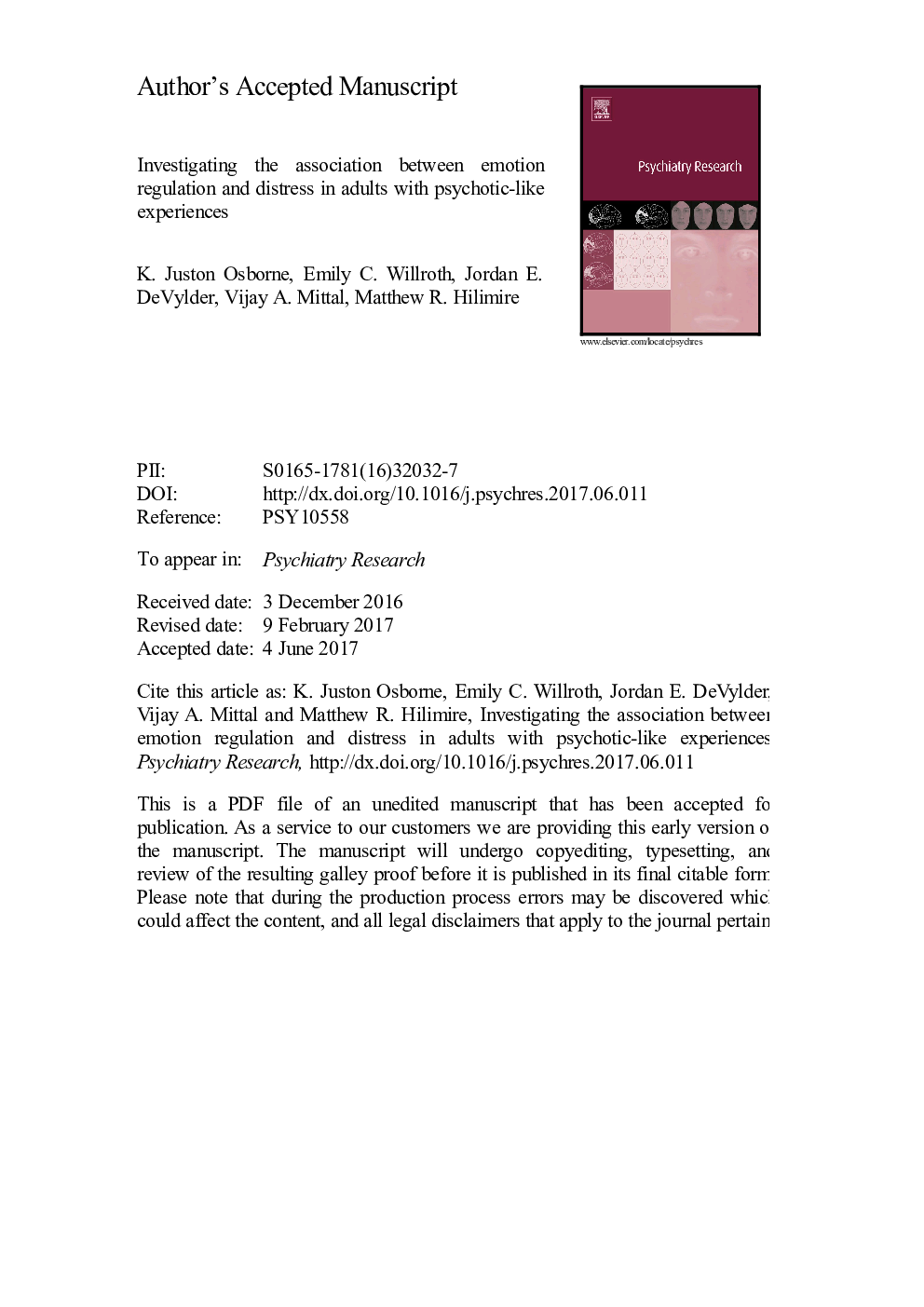| Article ID | Journal | Published Year | Pages | File Type |
|---|---|---|---|---|
| 4933041 | Psychiatry Research | 2017 | 20 Pages |
Abstract
Many individuals in the general population experience psychotic-like experiences in the absence of a psychotic disorder. The degree of psychological distress associated with these experiences is a key predictor of clinical outcomes. One factor that may influence the degree of distress from psychotic-like experiences is emotion regulation. Although it has been demonstrated that emotion regulation deficits are present in psychotic disorders, the association between emotion regulation and subclinical psychotic-like experiences is not well understood. Here, we examined the associations between frequency of and distress from psychotic-like experiences and several key components of emotion regulation: difficulties with emotion regulation; emotion regulation self-efficacy; and emotion regulation strategy use. Difficulties with emotion regulation and maladaptive patterns of emotion regulation strategy use were associated with the frequency of both positive and negative psychotic-like experiences. In addition, results suggest that habitual acceptance use and reappraisal self-efficacy may serve as protective factors against the distress associated with psychotic-like experiences.
Related Topics
Life Sciences
Neuroscience
Biological Psychiatry
Authors
K. Juston Osborne, Emily C. Willroth, Jordan E. DeVylder, Vijay A. Mittal, Matthew R. Hilimire,
